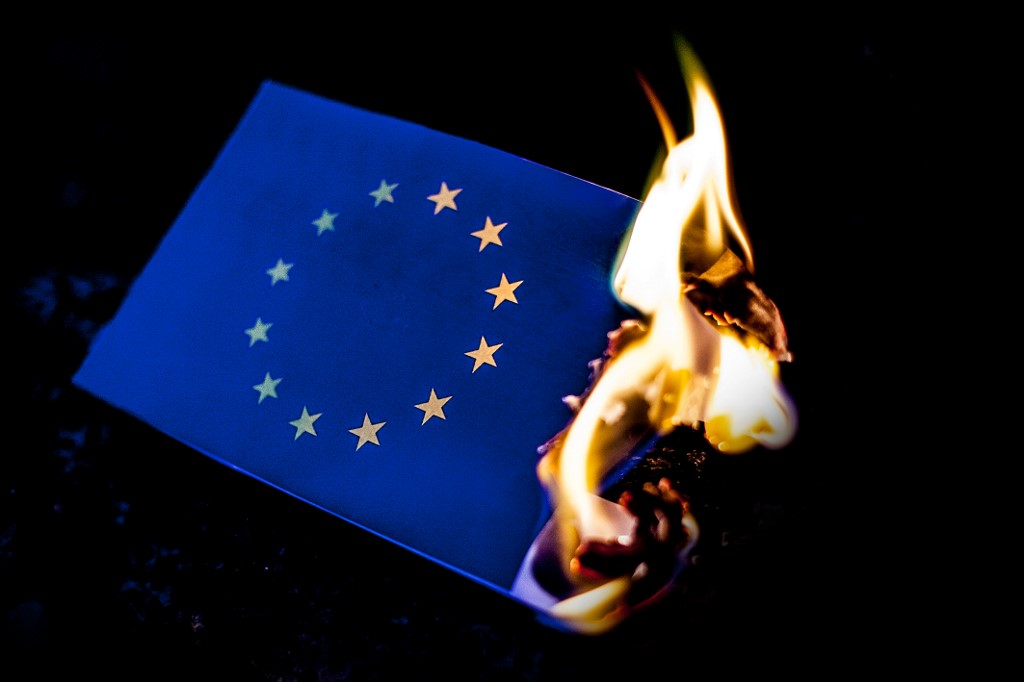(ATF) “A landmark moment”, “a historic step”, “a game-changer”. For once, the hype is justified: the European Union’s planned ?750 billion fund to rebuild economies shattered by the coronavirus epidemic truly does break new ground by shoring up both the EU and the euro. Asia should take notice.
The proposal is significant not because of the size of the fund but because it marks a decisive shift towards fiscal federalism, which for many is the critical missing link in the institutional make-up of the euro that could ultimately doom the single currency.
Until recently, Germany had been dead set against the euro area becoming what some called a “transfer union”, with richer northern European countries writing cheques to sustain the perceived leisurely lifestyles of poorer southern states living beyond their means.
And then came Covid.
The pandemic was taking such a heavy toll on Mediterranean economies that fears grew in financial markets that Italy in particular, where rising populism has eroded support for EU membership, could force Rome to leave the euro, possibly spelling the end of the project.
The European Central Bank duly renewed the pledge made by its former president, Mario Draghi, at the height of the euro crisis in 2012 to do “whatever it takes” to preserve the single currency by making unlimited bond purchases. Markets calmed down knowing that the ECB had Italy’s back.
But then came Germany’s constitutional court, which, in a controversial ruling, questioned the legality of the ECB’s bond buying.
Cue a Damascene conversion by German Chancellor Angela Merkel, who realised that the ruling risked crushing confidence in the euro and could thus eventually imperil the survival of the EU itself – not the political legacy she had in mind.
So, after refusing for years to contemplate fiscal handouts to weaker euro area members, Merkel agreed with French President Emmanuel Macron to let the European Commission raise ?500 billion in bonds to distribute as grants – not loans – to economies hardest hit by Covid.
It is this plan that forms the heart of the Commission’s recovery fund. It wants to top up the Franco-German pot with an extra ?250 billion to be disbursed as loans.
The idea of grants faces fierce opposition from four fiscally conservative northern European countries – the Netherlands, Austria, Denmark and Sweden. This frugal foursome argues instead for loans, which they say would give deeply indebted southern states an incentive to enact the reforms needed to revive their economies.
Whatever the final outcome of the negotiations, the Merkel-Macron initiative constitutes a paradigm shift: the principles of common borrowing – to be repaid from new, pan-EU taxes – and of grant aid cannot be “uninvented” now that they have been endorsed by the bloc’s two most powerful members.
The euro will thus no longer depend solely on monetary support from the ECB in times of crisis, partially satisfying critics who say no common currency in history has survived without political union and the mechanisms for fiscal redistribution that go along with it.
Why does this matter for Asia?
In the short term, bolstering confidence in the euro bodes well for global financial stability if markets take renewed fright over the coronavirus. And the stronger the economic recovery in Europe, the better the prospects for Asian exporters.
In the longer term, the European Commission aims through its bond issuance to build a yield curve of up to 30 years, serving as a AAA benchmark. A deep market of common euro-denominated debt, were it to emerge over time, would greatly enhance the attractiveness of the single currency. International investors in search of safe, liquid assets currently look instinctively to US Treasuries, not to bonds issued separately by the 19 states sharing the euro.
Asia can also learn from the efforts Europe is making to reinforce the foundations of its economy and to demonstrate solidarity between stronger and weaker nations.
Of course, the European Union is a project for economic and political integration that has no parallel in Asia. The common laws that bind the EU together would be anathema to, say, the Association of South East Asian Nations (Asean), whose members have made a cult out non-intervention in each other’s affairs.
But there is still a lot Asia could do to help itself and promote regional interdependence at a time when globalisation is fracturing and the institutions of international governance are under attack.
On trade, after nearly a decade of negotiations, governments must not allow any further delay in concluding the Regional Comprehensive Economic Partnership, which is due to be signed in Hanoi in November. India pulled out of the proposed free-trade agreement in November. The other participants – the 10 members of Asean, plus Japan, China, South Korea, Australia and New Zealand – should press ahead even if they cannot persuade Prime Minister Narendra Modi to change his mind.
On monetary cooperation, the Chiang Mai Initiative for pooling regional foreign exchange reserves remains effectively a dead letter nearly 20 years after the scheme was first launched as a web of bilateral currency swaps. Tellingly, the central banks of Singapore and South Korea are relying on the Federal Reserve – not their Asian neighbours – for emergency liquidity during the coronavirus crisis.
And more should be done to shield economies from destabilising swings in the dollar by building local-currency bond markets. Only China and South Korea can boast big markets, accounting for nearly 90% of emerging Asia’s $16 trillion in local-currency bonds outstanding, according to the Asian Development Bank.
To repeat, Asia is not Europe. But the willingness of EU leaders to take big political risks is a reminder that, in the saying attributed to Winston Churchill, policymakers should not let a good crisis go to waste.
Alan Wheatley is an associate fellow at Chatham House, the London think-tank. He was formerly the global economics correspondent and China economics editor for Reuters.
ALSO SEE: France hopes for EU recovery fund accord by early July
EU banks can weather coronavirus crisis: regulator
























